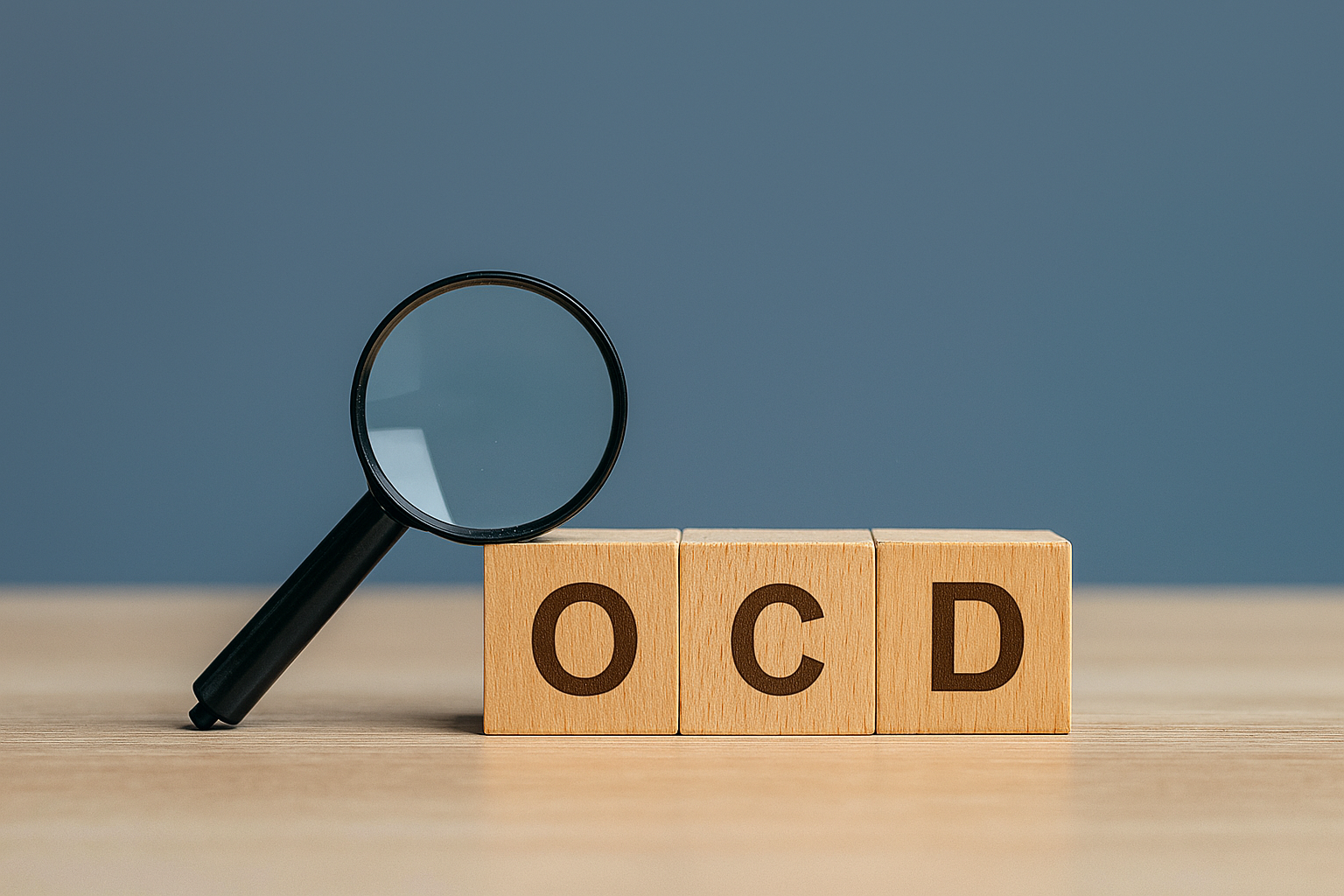Do I Have OCD? Take the Quiz & Explore Proven Treatment Options
You’ve Probably Wondered:
“Why do I feel so uncomfortable every time I touch a doorknob—even after I wash my hands?”
“Why do I have to arrange everything on my desk perfectly, or I feel overwhelmed and anxious?”
“Is this just anxiety—or is there something deeper going on?”
If you’re stuck in distressing thoughts, caught repeating the same behaviors over, or constantly trying to prevent something bad from happening by doing things “just right”—you’re not alone. And you're certainly not broken. These could be signs of Obsessive-Compulsive Disorder (OCD), a treatable condition that many people face.
What OCD Is
Involves intrusive, unwanted thoughts called obsessions.
Includes repetitive behaviors or mental rituals known as compulsions.
Leads people to perform compulsions in hopes of reducing anxiety or preventing something bad from happening.
Causes significant distress and interferes with daily life, work, and relationships.
What OCD Isn’t
Just being neat, tidy, or “perfectionistic”.
Doesn’t mean simply liking order or being particular.
A personality quirk or harmless habit.
Doesn’t go away by just “stopping the thoughts” or using willpower alone.
“I’ve seen how OCD can feel like being stuck in a horror movie—trapped and constantly bombarded by intrusive thoughts, images, or fears that get in the way of living a meaningful life. Many people believe that if they ignore their obsessions or stop doing their compulsions, something bad will happen or they’ll be acting irresponsibly. But the truth is, that cycle only keeps the pain going. On average, people live with OCD for 10–14 years before getting evidence-based treatment, often feeling hopeless and convinced things will never improve.
I love providing OCD treatment because it works—and it doesn’t take years to see results! Many people experience meaningful improvement within just a few months, and it’s inspiring to watch them tackle challenges they once thought were impossible. In fact, research shows that treatment typically leads to about a 60% reduction in symptoms, offering real relief and helping people reclaim their lives.
In OCD treatment, we talk about some difficult topics, so I think it helps to mix compassion with an appreciation for life’s funny moments. I really enjoy that blend of warmth and humor.
I deeply value the hard work and courage I see in people recovering from OCD. These patients are truly inspirational.”
Jason Jones, PhD, Psychologist at Aspire
The Gold-Standard: ERP Therapy (And Why It Works)
Exposure and Response Prevention (ERP) is the most effective researched-backed treatment for OCD.
It’s not about fighting your thoughts.
It’s about developing the strength to face them without feeling ruled by them.
ERP helps you:
Face the fear gradually, with support from our trained therapists.
Break the cycle of obsessions and compulsions that you use to reduce anxiety.
Learn that thoughts are just thoughts—they’re not dangerous, and they will pass,
Reclaim your time and energy—find peace of mind.
Strengthening the Mind: CBT for OCD (And How It Helps)
Cognitive Behavioral Therapy (CBT) is a tried and true, research-backed treatment that supports lasting change in how you think, feel, and respond.
It’s not about ignoring your thoughts.
It’s about building the strategies you need to feel more in control of your mind and your life.
CBT helps you:
Change or eliminate unhelpful thinking patterns that fuel anxiety and self-doubt.
See intrusive thoughts more clearly—so they feel less intense and easier to let go of.
Gain tools to handle emotions and daily stress with more confidence.
Build confidence to face what you’ve been avoiding and start moving forward with clarity and purpose.
Medication Support: How SSRIs Help Manage OCD
Selective Serotonin Reuptake Inhibitors (SSRIs) are the most commonly prescribed medications for OCD—and they’re often a helpful part of a well-rounded approach to treatment.
They’re not about changing who you are.
They’re about helping your brain process thoughts and emotions more effectively, so you can get more out of therapy and fully engage in daily life.
SSRIs can help you:
Reduce the intensity and frequency of obsessive thoughts
Decrease the urge to perform compulsive behaviors
Create space for therapy to work more effectively
Support long-term recovery when combined with ERP or CBT
Take a Free OCD Self-Assessment Now
If you’re wondering whether what you’re experiencing might be OCD, it’s worth exploring. Here’s a free, evidence-based OCD self-test to help you better understand your symptoms:
👉 Take the free OCD test via OCD-Bridge
This brief quiz is based on the Obsessive-Compulsive Inventory – Revised (OCI-R), developed by researchers. It’s not a diagnosis, but it’s a meaningful first step. And it might just give the clarity or validation you need to reach out for the right kind of support.
If your results suggest possible OCD symptoms—or if you still have questions—we can help.
Make an appointment today and take the next step toward relief and healing. Questions? Email us or call us at (503) 994-8811.
At Aspire Psychology, several of our expert clinicians work with OCD and use gold-standard treatments like Exposure and Response Prevention (ERP), Cognitive Behavioral Therapy (CBT), and medication management to help patients gain a sense of control and peace of mind.
Take the Next Step
You don’t have to navigate OCD alone.
At Aspire Psychology, our team of licensed psychologists, licensed therapists, and psychiatric providers can help with OCD treatment. We combine compassionate care with the most effective, research-based approaches available.
Whether you're ready to begin ERP therapy, explore CBT, or need medication support, we're here to help you build a personalized path to healing.
Schedule an appointment or contact us today. Begin your path toward lasting relief.
You deserve to feel more at ease—and more present in your life!

